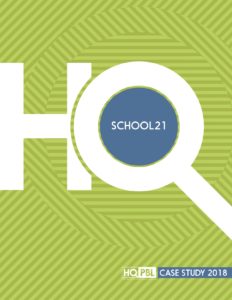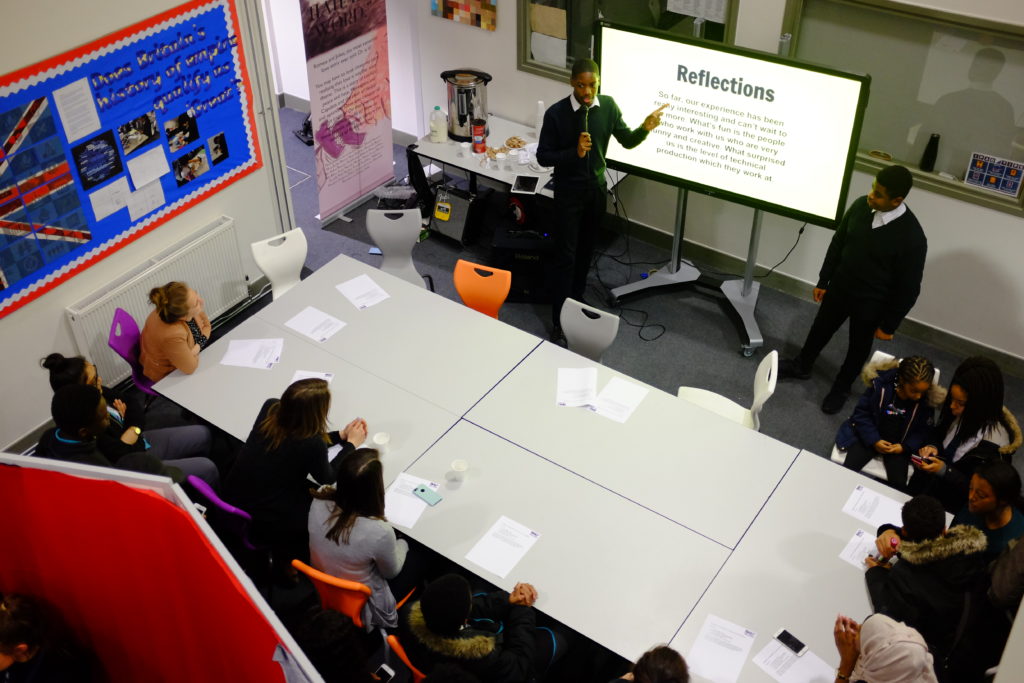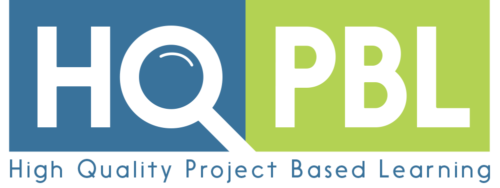I f you walk the halls of the lively School21 in London’s Stratford neighborhood, you easily might hear dozens of languages being spoken. Many of the school’s more than 1000 students have immigrated from other parts of the world, and as such, enter their grade levels with varying degrees of experience with English.
f you walk the halls of the lively School21 in London’s Stratford neighborhood, you easily might hear dozens of languages being spoken. Many of the school’s more than 1000 students have immigrated from other parts of the world, and as such, enter their grade levels with varying degrees of experience with English.
In this intensely diverse environment, it might be challenging to meet every student’s academic needs; thankfully, the students share a common lexicon when it comes to Project Based Learning, and new arrivals are quickly brought into the fold by their peers and teachers.
Collaboration, iterating, conducting research, problem solving, and communicating are central in the daily lives of School21’s students, who range in age from four to 18. Eight key elements (which are reflective of the six criteria for high quality Project Based Learning) are involved in the school’s approach, including:
- an essential question that guides the learning of a project;
- the grounding text as a resource;
- a timeline to support project management skill development;
- the consideration of authentic audience experience;
- and the production of a quality end product.
What transpires from this approach is something that Anna Kyrk, head of the school’s curriculum development and Project Based Learning, calls a learning journey—one that she notes has removed barriers for students of all backgrounds.

“Project Based Learning truly takes the ceiling off of knowledge,” Kyrk said. “It erases the limits of what our students can achieve and understand.”
The challenges students at School21 face aren’t to be underestimated. “Our students come from one of the most deprived areas in the country. Nearly half live in poverty, and many encounter social mobility issues. They often come to school well below the national average as a starting point, but the progress they make is amongst the top in the country. Much of that upward mobility is thanks to the impact of high quality Project Based Learning experiences.”
It isn’t difficult to see the strong correlation between the students’ remarkable ability to advance and School21’s project-based environment. Whether a child has grown up through the program or recently been introduced to it as a transfer student, each is able to meaningfully participate and witness their actions making a tangible impact in real time.
Kyrk recounted a recent project that involved a trip to London’s South Bank, where students conducted a street performance, “busking,” as it’s commonly called, to raise money for a children’s charity. The students planned and produced the performance, gaining knowledge in the course of their project of life during the industrial revolution—a time when kids in poverty had far fewer educational options—yet their resourcefulness and resilience is echoed in the students of today.
